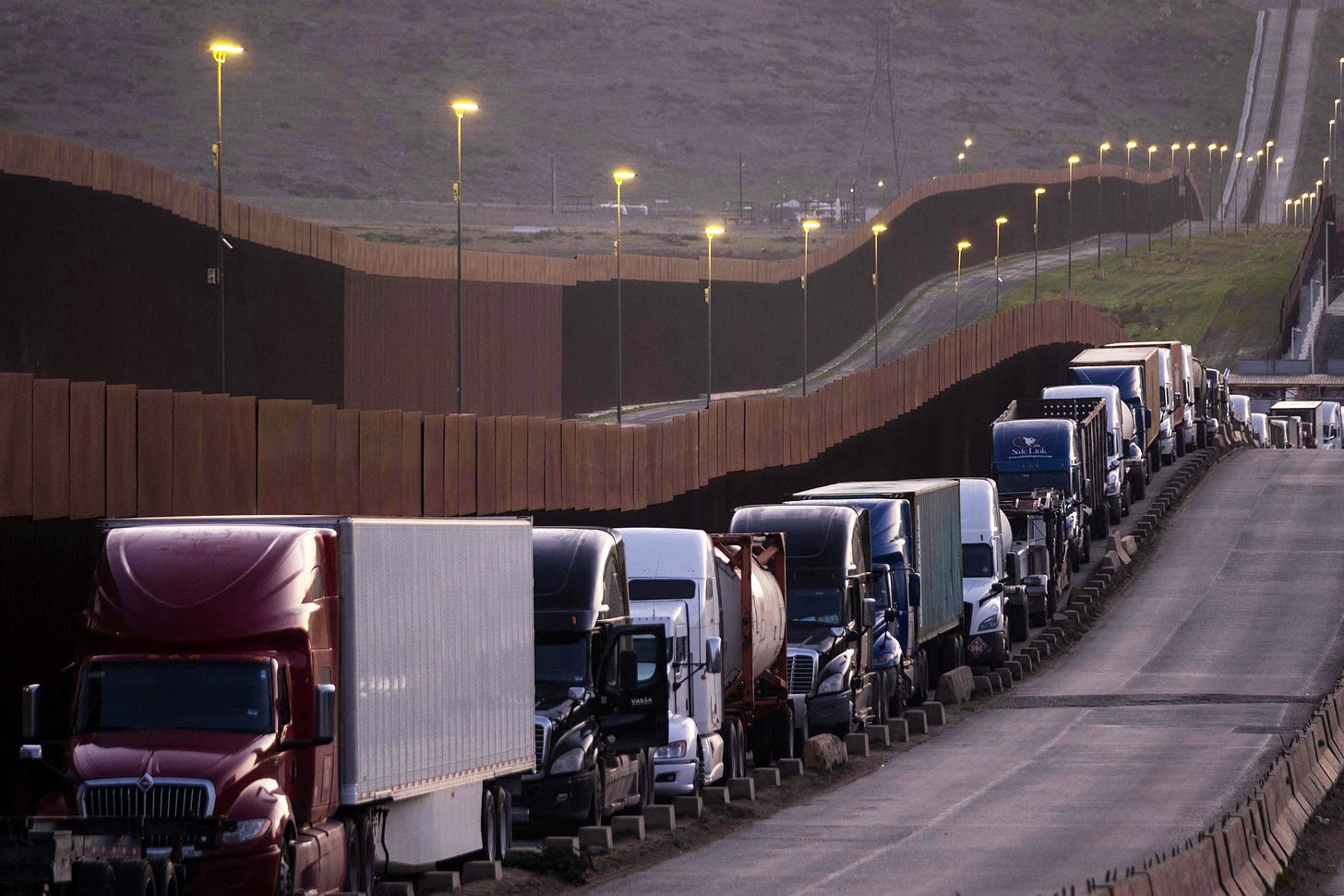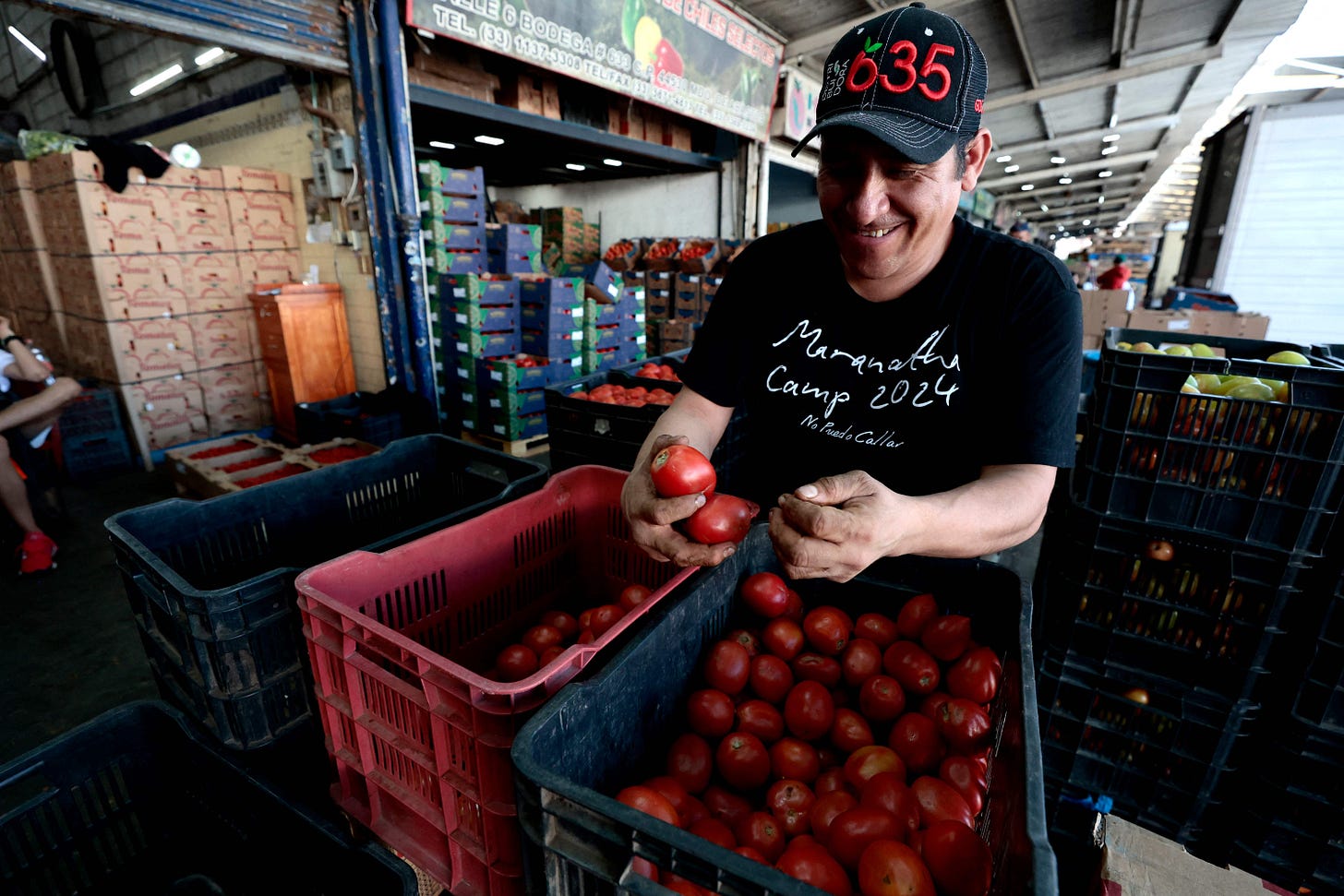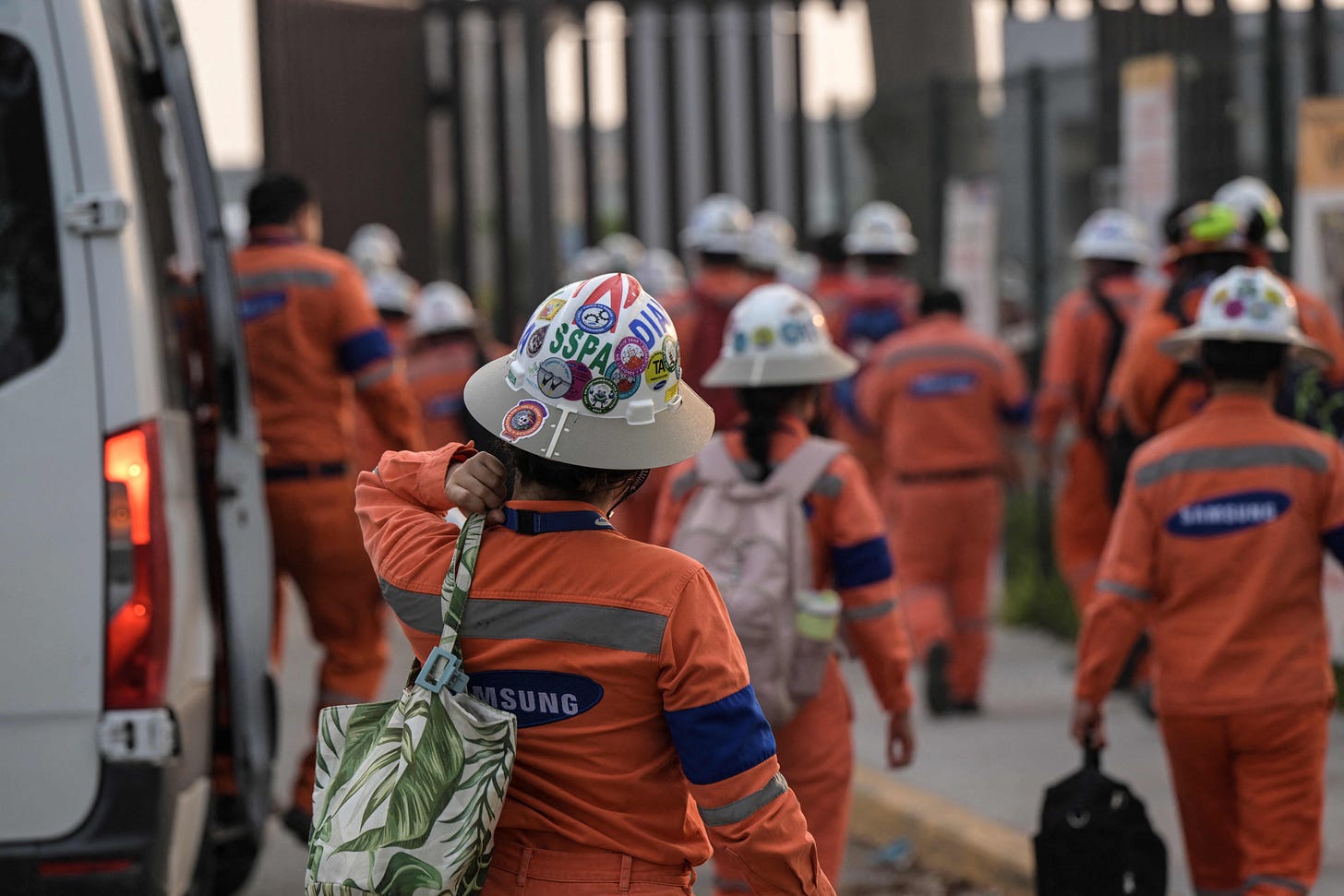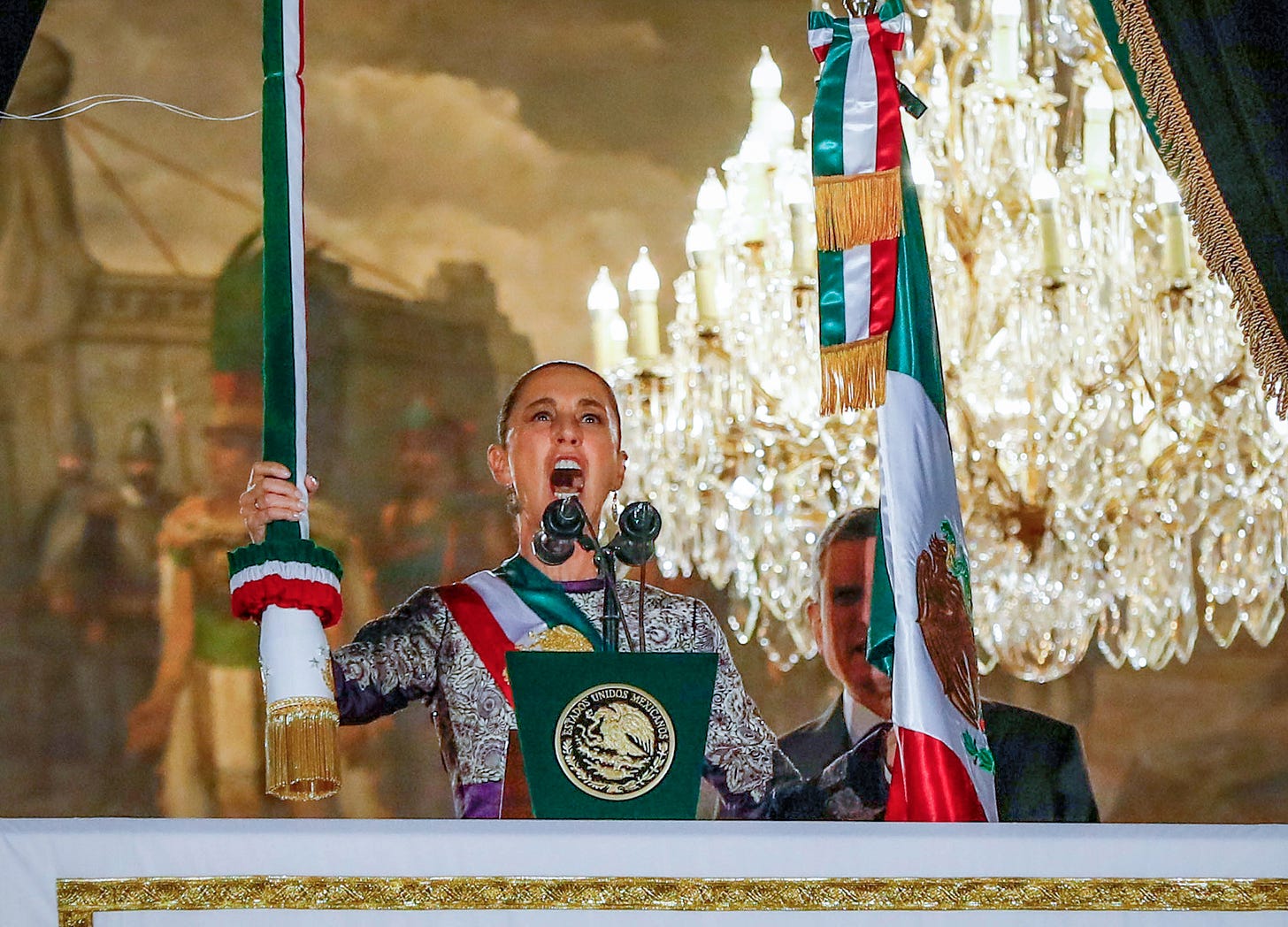USMCA: Will Mexico be the piñata?
Also: On its 41st anniversary, La Jornada faces the future of journalism. In Mexico, the Grito is historic–but silenced in some communities. 40 years since the earthquake: when it shakes, we move.
Lea La Jornada Internacional en español aquí.
Mexico has had to endure a series of attacks and accusations from U.S. politicians over the past few months, but that will pale in comparison to what we can expect with the start of the public debate and negotiations to renew the United States-Mexico-Canada Agreement, or USMCA.
Although the treaty is carefully decorated and full of candy according to the governments of North America, there are predictions in the U.S. that Mexico could become the piñata at this free trade party, subject to blows with sticks that have nothing to do with trilateral economic relations, but rather the usual range of criticisms involving drug trafficking, corruption, and immigration.
Over the past nine months, Mexican President Claudia Sheinbaum and her team have managed to avoid the worst damage that could have come from the tariffs President Donald Trump imposed, lifted, and then reimposed. According to Secretary of Economy Marcelo Ebrard, about 84 percent of Mexican exports enter the United States tariff-free thanks to the USMCA. If that access is restricted or eliminated, it would have a disastrous impact on Mexico’s economy.
On September 17th, the governments of Mexico and the United States announced the start of a public consultation period on the trade agreement in their respective countries. The deadline for the three countries to conclude the negotiations to extend the treaty is June of next year.
“What should be a routine procedure between the three economies that make up the largest free trade area in the world could turn into a complex and tense negotiation because of the aggressive attitude and mental instability of President Donald Trump,” noted La Jornada in an editorial. “A critical period begins for defending Mexico’s economic interests, sovereignty, and the principle of mutual respect in international relations, in the face of a Trumpism that only understands how to seize and impose, not how to build mutually beneficial scenarios.”
President Sheinbaum insists that the USMCA is “indispensable.” Meanwhile, the Confederation of National Chambers of Commerce, Services and Tourism welcomed the start of formal negotiations. In preparation, Mexico announced it will raise tariffs on Chinese goods by up to 50 percent, though Secretary of Economy Marcelo Ebrard insists the tariffs are not aimed at Beijing specifically but rather focused on encouraging Mexican producers. Still, few doubt that they’re part of Mexico’s maneuvering ahead of the talks to renew the USMCA.
“Mexico is openly moving toward deeper alignment with the strategic plans and operational needs of the United States,” criticizes columnist Julio Hernández López. “A nearly scandalous example of this alignment with Washington’s dictates can be seen in the tariffs now being imposed on Chinese products, ranging from 10 to 50 percent.” Enrique Dussel Peters raises the question of whether Mexico’s new tariff measures against China are part of a comprehensive strategy, or just a way to shut down any opportunity to diversify its trade relationships.
Always the optimist, Ebrard argues that Mexico will ultimately benefit from changes in the U.S. trade policy: “The United States has already decided to shift part of its supply chain to North America. ...That means within North America, Mexico is best positioned to receive a significant portion of that relocation, which is going to happen in the short term.”
But not everyone agrees. “There is no internal plan to ensure that these tariffs actually protect and strengthen Mexican industry,” writes José Romero. He argues that without an industrial policy, “the country remains trapped in a model that distributes without producing, spends without transforming, and depends on speculative capital that could flee at any moment.”
Manuel Pérez Rocha adds that in order to move beyond the neoliberal era, it’s necessary to prioritize the people’s interests over private ones—especially since those private interests now enjoy supranational mechanisms that undermine the sovereignty of countries in the Americas through agreements like the USMCA.
The Quote:
We have to denounce what is urgent, the genocide of Israel in Gaza.
-Spanish actor Javier Bardem, at the 2025 Emmy Awards.
In case you missed it
◻️ On its 41st anniversary, La Jornada confronts the future of journalism. Javier Aranda brings together the three editorial coordinators of our newsroom, Miguel Ángel Velázquez, Luis Hernández Navarro, and Roberto González Amador, who share anecdotes, memories, and reflections on what it means to do journalism at La Jornada: its origins, the present, and the challenges ahead.
◻️ A historic Grito in Mexico–but silenced in some communities. For the first time in 215 years, a woman delivered the Grito de Independencia. Claudia Sheinbaum honored the heroines of the independence struggle and included Indigenous and immigrant women in her “¡Viva México!” message. However, due to security concerns, celebrations were canceled in certain locations, such as Culiacán. In the United States, Mexican consulates were instructed to urge caution among nationals during the festivities due to threats of immigration raids by ICE agents. Participation was significantly lower than in previous years, and some local celebrations were canceled for the first time.
◻️ Corn imports rising in 2025. Historically, Mexico has been self-sufficient in white corn—the kind used for masa and tortillas. But it has long had a deficit in yellow corn, which is used in industry and animal feed, requiring imports for nearly 50% of demand. This year, however, white corn imports hit unprecedented levels, with a 268% increase.

◻️ The war on media, culture, and dissent in the U.S. Donald Trump’s administration has declared war on its political opponents, whom it brands the “radical left.” At the same time, it is working to rewrite the country’s historical and cultural narrative with a hyper-patriotic version that erases the contributions of minorities. On another front, the offensive continues against independent media outlets, with efforts to silence or subordinate the free press in the U.S.
◻️ Chile, 52 years after the coup. “Tributes to more than 40,000 direct victims, including the dead, disappeared, and tortured (...), began with a march to the General Cemetery in the capital, where the names of each of the massacred men, women, and even children are engraved in stone at a memorial,” reports La Jornada correspondent Aldo Anfossi. He notes that today, the right continues to justify the tragedy in a politically divided nation. Yet some say the commemoration also reflects a failure of the left. “We can affirm that, in the short and medium term, the chances of building an alternative to capitalism have been blocked by those who chose to dig the grave and bury the hopes of a dignified and democratic Chile, the one once united under the Popular Unity and its president, Salvador Allende,” writes Marcos Roitman Rosenmann.
◻️ When the earth shakes, we move: 40 years since the earthquake. The “19 de Septiembre” seamstresses’ cooperative, born out of the 1985 earthquake, tells its story of struggle and resilience through handmade dolls. Fifty-seven of them are featured in a new exhibition marking the anniversary of the quake that claimed the lives and livelihoods of hundreds, perhaps thousands, of seamstresses. “In the age of artificial intelligence, this collection shows the natural intelligence of solidarity and human creativity. We entrust our girls, these dolls, which are more than pieces of fabric, as guardians of our memory and dignity.”
▶️ VIDEO Los topos, 40 Years of Exemplary Rescue Workers








